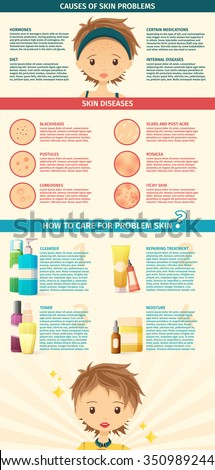Myths And Facts About Acne: Debunking Common Misconceptions
Myths And Facts About Acne: Debunking Common Misconceptions
Blog Article
Web Content Written By-Kelly Cameron
You could assume that delighting in delicious chocolate or greasy foods is the origin of your acne, yet that's just among numerous myths swirling around this usual skin problem. Actually, acne primarily originates from stopped up hair follicles, not your last treat. Misunderstandings like these can lead you to take on inefficient skincare methods that may even intensify your scenario. As https://columbusaestheticandplast66543.weblogco.com/32723385/join-the-journey-to-clearer-skin-with-efficient-acne-treatments-that-really-make-a-distinction browse the facts behind acne, you'll find understandings that could change your technique to skincare and assist you achieve clearer skin. So, what truly lies under the surface area?
Common Myths About Acne
When it involves acne, many individuals believe in common misconceptions that can bring about confusion and irritation. One widespread myth is that eating delicious chocolate or oily foods triggers acne. While diet regimen can influence skin wellness, the straight link in between particular foods and acne isn't as well-defined as many believe.
One more common misunderstanding is that you should scrub your face strongly to clear up outbreaks. In truth, aggressive rubbing can irritate your skin and worsen acne.
You may also believe that acne only influences teenagers, however grownups can experience it too, usually as a result of hormonal modifications or stress. Read Homepage believe that tanning can clear acne, yet sun direct exposure can in fact cause skin damage and aggravate outbreaks in the long run.
Finally, several believe that utilizing harsh products will remove acne quickly. Nevertheless, these products can remove your skin of its all-natural oils, causing raised inflammation and even more outbreaks.
Scientific Facts Behind Acne
Comprehending the clinical truths behind acne can equip you to tackle this usual skin disease more effectively.
Acne happens when hair roots come to be blocked with oil, dead skin cells, and microorganisms. This process often starts with an overflow of sebum, the oil your skin naturally produces. Hormonal adjustments, especially throughout the age of puberty or menstruation, can cause this excess oil.
Germs called Propionibacterium acnes grow in these blocked pores, causing swelling. When your immune system reacts, it can cause inflammation and swelling, leading to those bothersome acnes or cysts.
Genetics also play a role; if your parents had acne, you might be more vulnerable to it.
Diet regimen and tension levels can affect acne too, however research study is still advancing in these locations. While enjoying greasy foods will not straight cause breakouts, a balanced diet plan can sustain your skin wellness.
Furthermore, handling anxiety can lower hormone changes that may get worse acne.
Tips for Managing Acne
Handling acne efficiently requires a mix of day-to-day skincare routines and lifestyle modifications. Begin by developing a regular skin care regimen. Clean your face twice a day with a mild, non-comedogenic cleanser to remove dirt and excess oil. Avoid rubbing too hard, as this can irritate your skin and worsen acne.
Next off, integrate items consisting of salicylic acid or benzoyl peroxide to help stop outbreaks. Always follow up with a light-weight, oil-free cream to maintain your skin hydrated. Don't forget sun block; choose non-comedogenic choices to secure your skin from UV damages without blocking pores.
Beyond skin care, take note of your diet plan. Limitation sweet and greasy foods, and concentrate on fruits, veggies, and whole grains. Staying moisturized is crucial, so beverage lots of water throughout the day.
Furthermore, take care of anxiety via activities like yoga exercise, reflection, or exercise, as tension can set off outbreaks.
Last but not least, stay clear of choosing or popping acnes. This can result in scarring and further inflammation. If your acne persists, consult a dermatologist for individualized therapy options.
Conclusion
To conclude, it's necessary to different reality from fiction when it involves acne. By exposing common misconceptions, you can better comprehend your skin and make educated choices for your skin care regimen. So, why remain to rely on outdated ideas when the fact can empower you? Accept healthier routines, concentrate on mild cleansing, and remember that taking care of acne is a trip. With the best expertise, you're one step more detailed to more clear, healthier skin.
